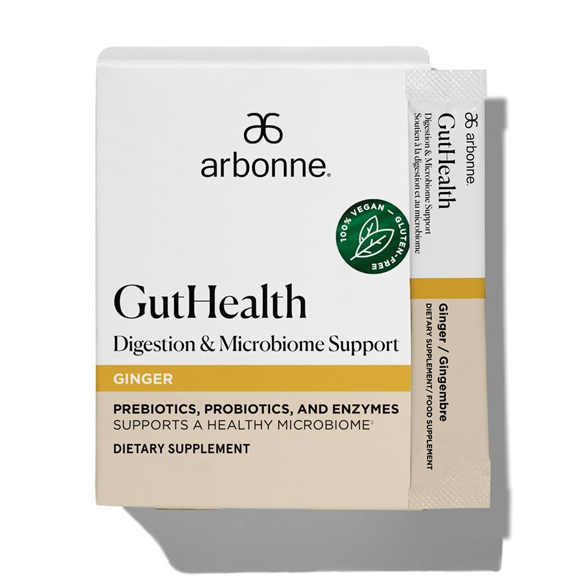Discover the Trick to Food Digestion and Resistance With Gut Wellness Support

Recognizing Intestine Wellness
Comprehending intestine health is crucial for general well-being, as it plays a considerable role in digestion, immunity, and also mental health and wellness. The intestine, comprising the stomach system, is in charge of breaking down food, soaking up nutrients, and getting rid of waste. A well balanced gut setting makes sure reliable food digestion, allowing the body to utilize nutrients efficiently.
Moreover, gut wellness substantially impacts the immune system. The gut houses a considerable part of the body's immune cells, and a healthy intestine can assist fend off virus and lower inflammation. Disruptions in intestine health can lead to an overactive immune action, possibly adding to autoimmune problems and allergic reactions.
Additionally, the intestine is typically referred to as the "second mind" due to the gut-brain axis, a complicated communication network linking the brain and the intestine. This connection influences state of mind, cognition, and psychological health. Problems such as dysbiosis, identified by an inequality in intestine germs, have actually been connected with psychological wellness conditions, including anxiousness and clinical depression.
The Gut Microbiome Explained

The intestine microbiome, a diverse neighborhood of microorganisms staying in the stomach system, plays a pivotal duty in maintaining digestion wellness and total health. Consisting of trillions of germs, viruses, fungi, and other microorganisms, this complicated ecological community help in the food digestion of food, the synthesis of essential nutrients, and the regulation of metabolic processes.
Each individual's digestive tract microbiome is unique, influenced by factors such as diet, lifestyle, genetics, and ecological exposures. A well balanced microbiome supports optimum digestion by damaging down complex carbs, generating short-chain fats, and facilitating the absorption of nutrients. Conversely, an imbalance, typically referred to as dysbiosis, can lead to gastrointestinal disorders, consisting of cranky bowel disorder (IBS) and inflammatory digestive tract illness (IBD)
Study has actually demonstrated that a diverse microbiome is connected with better health and wellness end results, emphasizing the relevance of dietary options in nurturing these microorganisms. Foods rich in fiber, probiotics, and prebiotics, such as fruits, vegetables, and fermented products, can promote a healthy microbiome. Recognizing the intestine microbiome is important for developing targeted interventions focused on boosting gastrointestinal health and protecting against stomach diseases.

Connection In Between Food Digestion and Immunity
A robust connection exists in between digestion and immunity, highlighting the critical function of the intestine in preserving overall health and wellness. The intestinal system is home to trillions of bacteria that form the gut microbiome, which significantly influences both immune responses and digestion procedures. This complicated ecological community help in damaging down food, absorbing nutrients, and providing vital metabolites that support immune function.
When food digestion is effective, the gut obstacle continues to be undamaged, protecting against unsafe pathogens from going into the blood stream. Roughly 70% of the immune system lives in the gut-associated lymphoid cells (GALT), which communicates carefully with the intestine microbiome.
Tips for Sustaining Gut Health And Wellness
Sustaining digestive tract health and wellness is important for keeping both digestive performance and a well-functioning body immune system. To promote optimum gut health, think about including a number of practical approaches right into your day-to-day regimen.
First, focus on hydration. Consuming alcohol sufficient water sustains digestion and aids keep the mucosal lining of the intestinal tracts. Furthermore, normal exercise can improve digestive tract mobility and promote a diverse microbiome.
Conscious eating practices are additionally crucial. Eating food completely and consuming slowly can aid digestion and stop over-eating, which might stress the gut. Managing stress via techniques such as meditation, yoga, or deep-breathing workouts can favorably influence gut health, as moved here tension is known to interrupt digestive system procedures.
Incorporating prebiotics and probiotics right into your routine is an additional you can try here reliable strategy. While details foods will certainly be gone over later, recognizing the value of these parts is crucial. Prebiotics serve as food for helpful digestive tract germs, while probiotics introduce live useful organisms.
Last but not least, avoid extreme usage of antibiotics, as they can disrupt the balance of digestive tract plants. By following these suggestions, you can significantly add to the maintenance of a healthy intestine, which is important for general wellness and vigor.
Foods That Promote Digestive Tract Wellness

Fermented foods, such as yogurt, kimchi, sauerkraut, and kefir, are abundant in probiotics, which are helpful microorganisms that support intestine plants and boost food digestion. These foods can help recover balance in the digestive tract, specifically after antibiotic use or digestive disturbances.
In addition to fermented alternatives, prebiotic foods, such as garlic, onions, asparagus, and bananas, work as nutrition for these probiotics, promoting their development and task. These soluble fibers support digestive tract motility and can reduce issues like irregularity.
In addition, including high-fiber foods, including whole grains, fruits, vegetables, and legumes, is crucial for maintaining a healthy intestine. Fiber help in normal defecation and helps prevent digestive problems.
Finally, omega-3 fatty acids discovered in fatty fish, flaxseeds, and walnuts have anti-inflammatory properties that can additionally support intestine health and wellness. Stressing these foods in your diet regimen can cause a durable gastrointestinal system and improved immune function.
Final Thought
Finally, prioritizing gut wellness is essential for optimizing digestion and enhancing resistance. A well balanced intestine microbiome, influenced by dietary selections and way of life aspects, plays a crucial role in nutrient absorption and swelling reduction. Incorporating fermented foods, prebiotics, and high-fiber options, alongside proper hydration and tension management, can significantly advertise intestine health. By adopting these approaches, people can support general wellness and vigor, opening the possible advantages of a well-functioning gastrointestinal system.
Recognizing digestive tract health and wellness is critical for general health, as it plays a considerable function in food digestion, resistance, and even psychological health and wellness. The digestive tract houses a significant part of the body's immune cells, and a healthy and balanced intestine can aid fend off microorganisms and decrease inflammation.Furthermore, the gut is typically referred to as the "second mind" due to the gut-brain axis, a complex communication network connecting the digestive tract and the brain.A durable connection exists in between digestion and resistance, highlighting the vital function of the gut in keeping general find this wellness.In final thought, focusing on digestive tract health and wellness is crucial for enhancing digestion and boosting resistance.